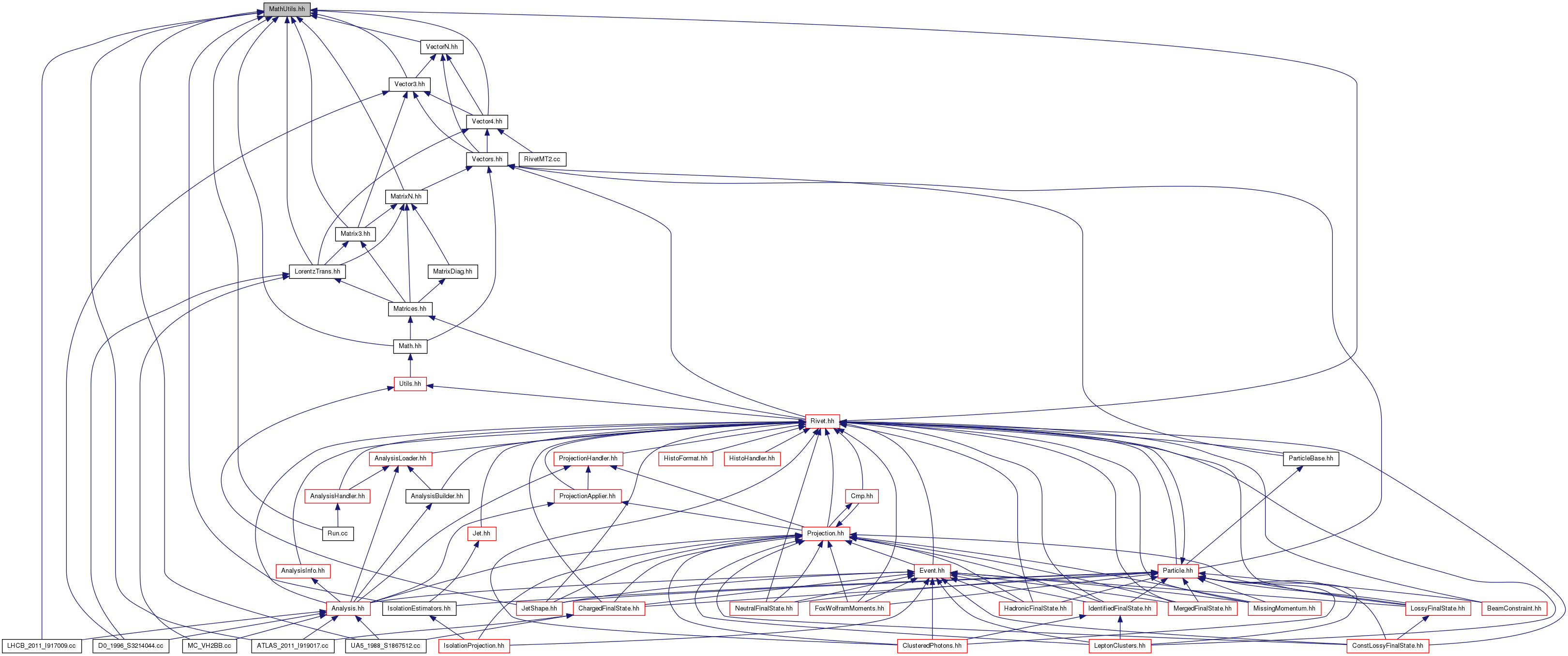Namespaces |
| namespace | Rivet |
Functions |
|
| bool | isZero (double val, double tolerance=1E-8) |
| bool | isZero (long val, double UNUSED(tolerance)=1E-8) |
| bool | fuzzyEquals (double a, double b, double tolerance=1E-5) |
| | Compare two floating point numbers for equality with a degree of fuzziness.
|
| bool | fuzzyEquals (long a, long b, double UNUSED(tolerance)=1E-5) |
| | Compare two integral-type numbers for equality with a degree of fuzziness.
|
| bool | fuzzyGtrEquals (double a, double b, double tolerance=1E-5) |
| | Compare two floating point numbers for >= with a degree of fuzziness.
|
| bool | fuzzyGtrEquals (long a, long b, double UNUSED(tolerance)=1E-5) |
| | Compare two integral-type numbers for >= with a degree of fuzziness.
|
| bool | fuzzyLessEquals (double a, double b, double tolerance=1E-5) |
| | Compare two floating point numbers for <= with a degree of fuzziness.
|
| bool | fuzzyLessEquals (long a, long b, double UNUSED(tolerance)=1E-5) |
| | Compare two integral-type numbers for <= with a degree of fuzziness.
|
|
| template<typename NUM > |
| NUM | sqr (NUM a) |
| | Named number-type squaring operation.
|
| template<typename Num > |
| Num | add_quad (Num a, Num b) |
| | Named number-type addition in quadrature operation.
|
| template<typename Num > |
| Num | add_quad (Num a, Num b, Num c) |
| | Named number-type addition in quadrature operation.
|
| template<typename Num > |
| Num | intpow (Num val, unsigned int exp) |
| | A more efficient version of pow for raising numbers to integer powers.
|
| int | sign (double val) |
| | Find the sign of a number.
|
| int | sign (int val) |
| | Find the sign of a number.
|
| int | sign (long val) |
| | Find the sign of a number.
|
|
| vector< double > | linspace (size_t nbins, double start, double end) |
| | Make a list of nbins + 1 values equally spaced between start and end inclusive.
|
| vector< double > | logspace (size_t nbins, double start, double end) |
| | Make a list of nbins + 1 values exponentially spaced between start and end inclusive.
|
| template<typename NUM > |
| int | index_between (const NUM &val, const vector< NUM > &binedges) |
| | Return the bin index of the given value, val, given a vector of bin edges.
|
|
| double | mean (const vector< int > &sample) |
| | Calculate the mean of a sample.
|
| double | mean_err (const vector< int > &sample) |
| double | covariance (const vector< int > &sample1, const vector< int > &sample2) |
| | Calculate the covariance (variance) between two samples.
|
| double | covariance_err (const vector< int > &sample1, const vector< int > &sample2) |
| | Calculate the error on the covariance (variance) of two samples, assuming poissonian errors.
|
| double | correlation (const vector< int > &sample1, const vector< int > &sample2) |
| | Calculate the correlation strength between two samples.
|
| double | correlation_err (const vector< int > &sample1, const vector< int > &sample2) |
| | Calculate the error of the correlation strength between two samples assuming Poissonian errors.
|
|
| double | _mapAngleM2PITo2Pi (double angle) |
| | Reduce any number to the range [-2PI, 2PI].
|
| double | mapAngleMPiToPi (double angle) |
| | Map an angle into the range (-PI, PI].
|
| double | mapAngle0To2Pi (double angle) |
| | Map an angle into the range [0, 2PI).
|
| double | mapAngle0ToPi (double angle) |
| | Map an angle into the range [0, PI].
|
|
| double | deltaPhi (double phi1, double phi2) |
| | Calculate the difference between two angles in radians.
|
| double | deltaEta (double eta1, double eta2) |
| double | deltaR (double rap1, double phi1, double rap2, double phi2) |
| double | rapidity (double E, double pz) |
| | Calculate a rapidity value from the supplied energy E and longitudinal momentum pz.
|
Ranges and intervals |
| enum | RangeBoundary { OPEN = 0,
SOFT = 0,
CLOSED = 1,
HARD = 1
} |
| template<typename NUM > |
| bool | inRange (NUM value, NUM low, NUM high, RangeBoundary lowbound=CLOSED, RangeBoundary highbound=OPEN) |
| | Determine if value is in the range low to high, for floating point numbers.
|
| template<typename NUM > |
| bool | inRange (NUM value, pair< NUM, NUM > lowhigh, RangeBoundary lowbound=CLOSED, RangeBoundary highbound=OPEN) |
| | Alternative version of inRange for doubles, which accepts a pair for the range arguments.
|
| bool | inRange (int value, int low, int high, RangeBoundary lowbound=CLOSED, RangeBoundary highbound=CLOSED) |
| | Determine if value is in the range low to high, for integer types.
|
| bool | inRange (int value, pair< int, int > lowhigh, RangeBoundary lowbound=CLOSED, RangeBoundary highbound=OPEN) |
| | Alternative version of inRange for ints, which accepts a pair for the range arguments.
|


 1.7.6.1
1.7.6.1